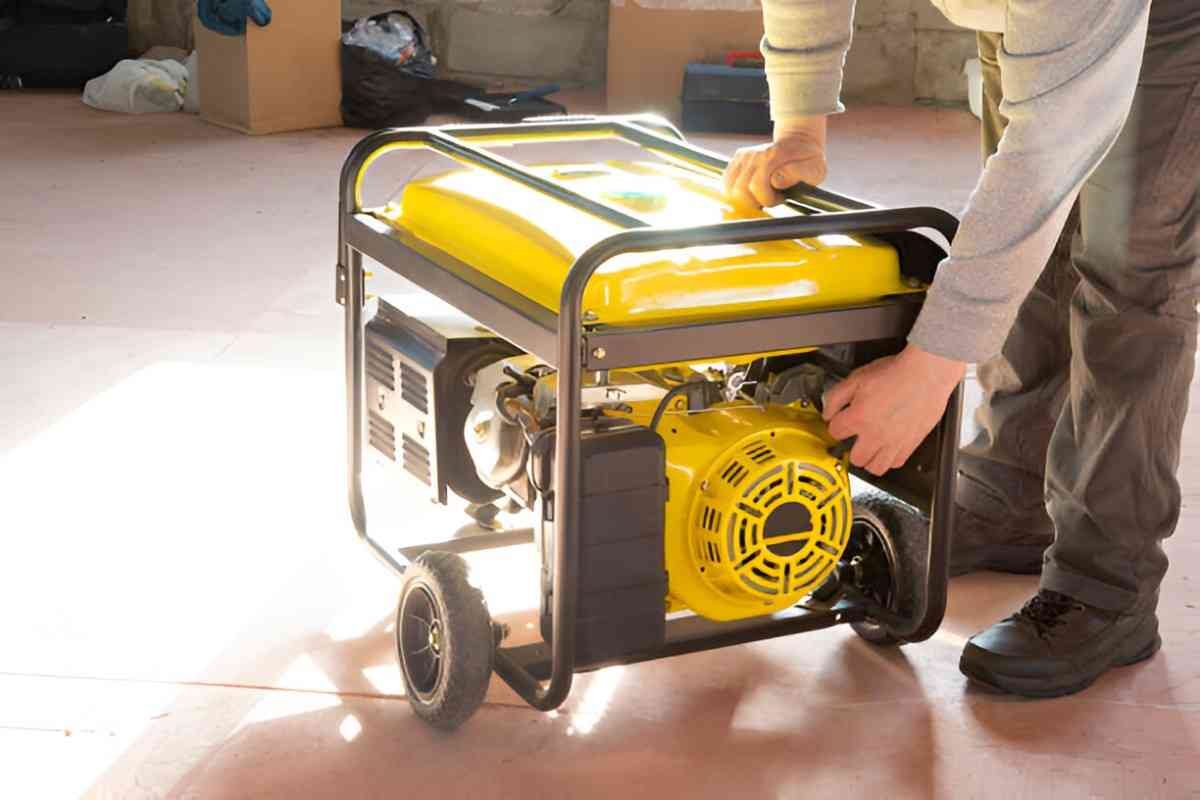Portable generators have become essential tools for ensuring power reliability, especially during outages or while off-grid. Whether you need backup power for your home, a reliable source for outdoor adventures, or a unit for a worksite, understanding the range of portable generators available is crucial. In this guide, I will walk you through everything you need to know about portable generators—their features, applications, and how to choose the right one for your needs.
Table of Contents
Why Portable Generators Matter
Portable generators are versatile tools that provide power in situations where the grid is unavailable or unreliable. They can keep essential appliances running during blackouts, power tools on construction sites, and provide electricity for outdoor activities.
When considering a portable generator, key factors include its wattage, fuel type, noise level, and portability. Let’s explore these elements in detail to help you make an informed decision.
Understanding Wattage and Power Requirements
The power output of a portable generator is measured in watts. You’ll encounter two terms: running watts and surge watts.
- Running Watts: This is the continuous power the generator can provide.
- Surge Watts: This is the additional power available for a short burst, often needed to start motors in appliances.
Here’s a table to help you estimate the wattage requirements of common appliances:
| Appliance | Running Watts | Surge Watts |
|---|---|---|
| Refrigerator | 700 | 1200 |
| Window AC Unit (10,000 BTU) | 1200 | 1800 |
| Coffee Maker | 1000 | 1500 |
| Microwave | 1000 | 1200 |
| Laptop | 50 | 0 |
| LED Light Bulb (60W) | 60 | 0 |
Before purchasing, total up the wattage of all appliances you plan to use simultaneously. Then, add a margin for safety by choosing a generator with a slightly higher capacity than your total.
Types of Portable Generators
Conventional Generators
Conventional generators use internal combustion engines to produce electricity. They are typically more affordable but can be louder and less fuel-efficient than inverter models. These are great for high-power needs like running heavy appliances or tools.
Inverter Generators
Inverter generators are a modern alternative. They convert AC power to DC and back to AC, ensuring a consistent current suitable for sensitive electronics like laptops and phones. They are quieter, more compact, and more fuel-efficient than conventional models.
Dual-Fuel Generators
Dual-fuel generators offer the flexibility of running on gasoline or propane. This versatility can be invaluable during emergencies when one fuel type might be unavailable.
Key Features to Consider
Fuel Type
Portable generators typically run on one or more of the following fuels:
- Gasoline: Readily available and offers high energy density, but it has a shorter shelf life.
- Propane: Cleaner-burning and has a longer shelf life but may provide slightly less energy.
- Diesel: Efficient and long-lasting, but diesel generators are often larger and louder.
Noise Levels
Noise level is a critical factor, especially in residential areas or campsites. Noise is measured in decibels (dB). Inverter generators usually operate between 50-60 dB, while conventional ones can exceed 70 dB.
Portability
Portability depends on weight, size, and whether the generator has wheels or handles. Lightweight models are suitable for camping, while larger ones often include features like foldable handles and rugged wheels for easier transport.
Runtime and Fuel Efficiency
Check how long a generator can run on a full tank at 50% load. Inverter generators generally excel in fuel efficiency, offering longer runtimes.
Safety Features
Modern generators include safety features like:
- Low-Oil Shutdown: Prevents engine damage when oil is low.
- Overload Protection: Safeguards the generator from exceeding its capacity.
- Carbon Monoxide Sensors: Shuts the generator off if CO levels become dangerous.
Comparing Top Portable Generators
Here’s a comparison of some of the best portable generators currently available:
| Model | Type | Wattage (Running/Surge) | Noise Level (dB) | Fuel Type | Runtime (50% Load) | Weight (lbs) |
|---|---|---|---|---|---|---|
| Honda EU2200i | Inverter | 1800 / 2200 | 57 | Gasoline | 8.1 Hours | 47 |
| Westinghouse WGen7500 | Conventional | 7500 / 9500 | 72 | Gasoline | 11 Hours | 192 |
| Champion 3400-Watt | Dual-Fuel | 3100 / 3400 | 59 | Gasoline/Propane | 7.5 Hours (Gasoline) | 95 |
| Jackery Explorer 2000 | Solar | 2000 / 2200 | Silent | Solar | Dependent on Solar Input | 43 |
Maintenance Tips
Keeping your portable generator in good condition ensures reliable performance and a long lifespan. Here are some maintenance tips:
- Regular Oil Changes: Follow the manufacturer’s guidelines for changing oil.
- Clean Air Filters: Dirty air filters can reduce efficiency and damage the engine.
- Run Periodically: Even if you don’t need it, running the generator monthly prevents fuel system issues.
- Store Fuel Properly: Use fuel stabilizers to extend the shelf life of gasoline.
- Inspect Cords: Check power cords for wear and damage.
When and Where to Use Portable Generators
Home Backup
During power outages, portable generators can keep essential appliances running. Connect them through a transfer switch for safety and convenience.
Outdoor Recreation
For camping or tailgating, lightweight inverter generators are ideal. Look for models with USB ports and low noise levels.
Worksites
High-powered conventional generators can handle power tools and heavy equipment. Choose durable models designed for rugged environments.
Safety Considerations
Operating a portable generator requires caution to avoid hazards like carbon monoxide poisoning, electrical shocks, and fires. Follow these safety tips:
- Always operate the generator outdoors, away from windows and doors.
- Use a carbon monoxide detector if running the generator near living areas.
- Avoid overloading the generator.
- Use heavy-duty extension cords rated for outdoor use.
- Turn off the generator and let it cool before refueling.
Final Thoughts
Choosing the best portable generator depends on your specific needs. Whether you prioritize quiet operation, fuel efficiency, or high power output, understanding the available options ensures you make the right choice. By considering factors like wattage, fuel type, noise levels, and portability, you’ll find a generator that fits your requirements. With proper maintenance and safe operation, your portable generator will serve as a reliable power source for years to come.





